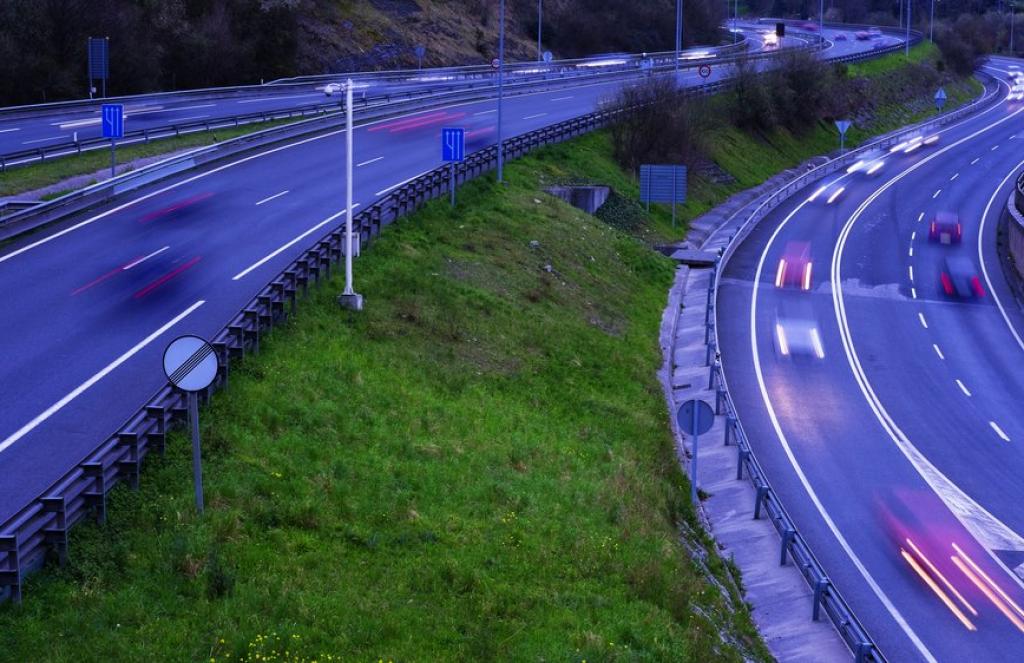Thessaloniki gets ready for its metro launch in November
The underground rapid transit lines have been under construction for almost two decades due to various project delays
 TheMayor.EU logo
TheMayor.EU logo 
Spanish motorways are set to become drastically more energy-efficient with new government plan, Source: Depositphotos
The country’s transport ministry unveiled an Energy Efficiency Strategy that seeks to halve power consumption on the roads
Yesterday, 25 October, the Spanish Ministry of Transport presented a plan to reduce energy consumption on the country’s motorways by 50% in the next six years. The cornerstone of the new Energy Efficiency Strategy will be the modernization and “smartification” of road-side lighting, which will be fully based on LED technology that will change the luminosity according to the intensity of traffic below.
Thus, the Ministry plans to invest some 510 million euros in modernizing the lighting system, generating savings in energy demand and being less dependent on fossil fuels.
The Strategy contemplates acting on lighting in tunnels and open-air sections, where smart lighting management systems will be implemented and the change from high-pressure sodium vapour lights to LED technology will be promoted.
The replacement of the luminaires will generate savings of between 30 and 40%, and can reach 70% if the deployment of intelligent lighting management systems is added, which allow it to be regulated depending on the presence or absence of vehicles and users.
The Ministry also presented some numbers in order to better visualize the scope of the intended energy savings. For example, they would be equivalent to the annual energy consumption of 65,000 homes. They would also be equivalent to having the emissions of 30,000 vehicles removed from the atmosphere, or planting 3.5 million trees.
Furthermore, in economic terms, the installation and maintenance of the new lighting network will create 7,650 direct and indirect jobs.
In addition, to achieve the objective of reducing dependence on external energy sources and fossil fuels, pilot experiences are being promoted at different points of the State Highway Network to, for example, install solar panels in highway maintenance centres or in public domain areas.

The underground rapid transit lines have been under construction for almost two decades due to various project delays

Now you can get your wine in Talence by paying directly in Bitcoin

That’s because the state has to spend money on updating the railway infrastructure rather than subsidizing the cost of the popular pass

Rethinking renewable energy sources for the urban landscape

The examples, compiled by Beyond Fossil Fuels, can inform and inspire communities and entrepreneurs that still feel trepidation at the prospect of energy transition

Now you can get your wine in Talence by paying directly in Bitcoin

The 10th European Conference on Sustainable Cities and Towns (ESCT) sets the stage for stronger cooperation between the EU, national and local level to fast track Europe's transition to climate neutrality.

At least, that’s the promise made by the mayor of Paris, Anne Hidalgo

The underground rapid transit lines have been under construction for almost two decades due to various project delays

At least, that’s the promise made by the mayor of Paris, Anne Hidalgo

Hostal de Pinós is located in the geographical centre of the autonomous region

Despite its church-y name, the district has long been known as the hangout spot for the artsy crowds

Urban dwellers across the EU are having a say in making their surroundings friendlier to people and the environment.

Forests in the EU can help green the European construction industry and bolster a continent-wide push for architectural improvements.

Apply by 10 November and do your part for the transformation of European public spaces

An interview with the Mayor of a Polish city that seeks to reinvent itself

An interview with the newly elected ICLEI President and Mayor of Malmö

A conversation with the Mayor of Lisbon about the spirit and dimensions of innovation present in the Portuguese capital














